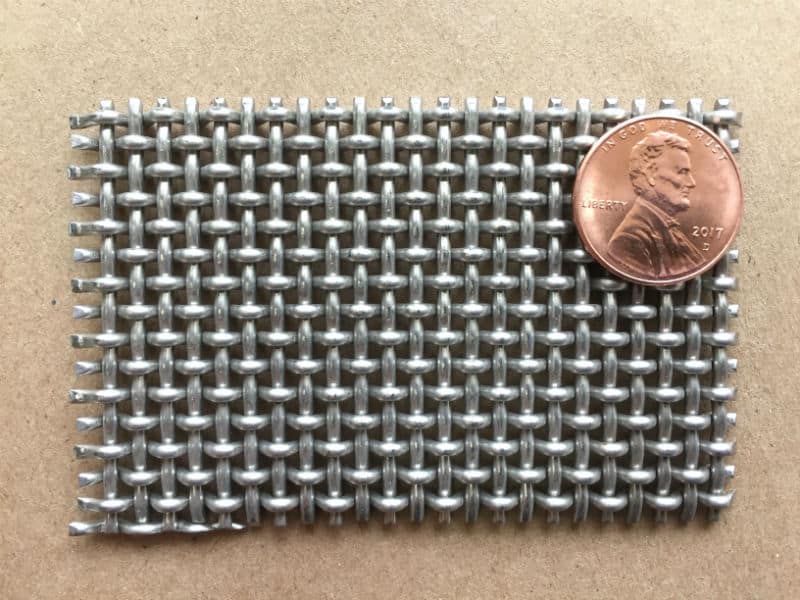Depending on the type of mesh you choose at the time you are purchasing a sintered wire cloth will help determine the characteristics of that cloth and whether it will hold up to do the job you want it to perform. Depending on type of weave changes the functionality of the sintered wire cloth, so it is crucial that you select the correct weave for the job you are looking to get done.
There are two types of weave that are the most common. Popular mesh weaves are the plain weave and the plain Dutch weave. The plain weave is a very simple type of weave. When you examine the plain weave, you will notice that each wire crosses over and under the other, which creates a stable mesh. This type of weave is also flexible and can be used in multiple ways.
Now the plain Dutch weave is very similar to the plain weave, however the plain Dutch weave contains a much heavier wire than the other type. This helps make the plain Dutch weave much sturdier and stronger than a plain weave and is more tightly knitted together for a better filtering experience.
Dutch weave stainless steel wire mesh is commonly used as filter media. Plain Dutch weaves offer strength and rigidity along with fine filtration capabilities. Twilled Dutch weaves offer even greater strength and finer filtration ratings. In a twilled weave, the wires cross two under and two over, allowing heavier wires and higher mesh counts. Our micronic filter cloth is available in various meshes and weaves, including plain Dutch weave, twilled Dutch weave, and reverse Dutch weave. They are available in either T304 Stainless Steel or T316 Stainless Steel.
The plain weave and Dutch plain weave are just two types of mesh weaves. Give us a call today and we can help you determine the right type of mesh weave for your project.

